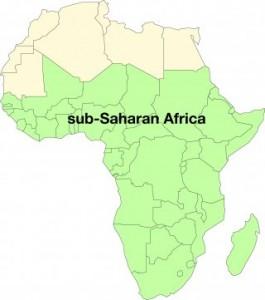NAIROBI, Jan. 11 (Xinhua) -- The World Bank said sub-Saharan Africa economy is expected to pick up modestly to 2.9 percent in 2017 as the region continues to adjust to lower commodity prices.
However, growth in South Africa and oil exporters is anticipated to be weaker, according to the WB's January Global Economic Prospects report released on Wednesday. Growth in economies that are not natural-resource intensive should remain robust.
"On a per capita basis, regional GDP contracted by an estimated 1.1 percent. South Africa and oil exporters, which contribute two-thirds of regional output, accounted for most of the slowdown, while activity in non-resource intensive economies generally remained robust," the lender said.
The report says growth in South Africa is expected to edge up to a 1.1 percent pace this year and output will be held back by tight fiscal policy and high unemployment that is weighing on consumer spending.
According to the WB, Nigeria is forecast to rebound from recession and grow at a 1.0 percent pace, as an anticipated modest improvement in oil prices, coupled with an increase in oil production, boost domestic revenues.
Angola is projected to expand at a moderate 1.2 percent pace as high inflation and tight policy continue to weigh on consumption and investment.
The WB said growth in the Sub-Saharan Africa region is estimated to have slowed to a 1.5 percent rate in 2016, the weakest pace in over two decades, as commodity exporting economies adjusted to low prices.
The region's two largest oil exporters -- Angola, where growth slowed to a 0.4 percent rate, and Nigeria, which contracted by 1.7 percent -- faced severe economic and financial strains.
"Other oil exporters were also hit hard by low oil prices, with Chad contracting by 3.5 percent and Equatorial Guinea shrinking by 5.7 percent," it said.
According to the report, metals exporters struggled with low prices as well. Growth slowed to 2.7 percent in the Democratic Republic of Congo and to 3.6 percent in Mozambique, where a surge in government debt weighed on investor sentiment.
The post-Ebola recovery in Guinea accelerated to 5.2 percent. Liberia picked up to 2.5 percent, and Sierra Leone, which expanded by 3.9 percent, was hampered by low prices for iron ore.
Many agricultural exporters, such as Cote d'Ivoire, which expanded by 7.8 percent, and Ethiopia, which grew by 8.4 percent, registered strong output on the back of infrastructure investment.
In other mineral and energy exporters, the outlook is generally favorable as Ghana is forecast to surge to 7.5 percent growth pace as improving fiscal and external positions help boost investor confidence.
"Progress in developing Mozambique's energy sector will help spur investment in that country's natural gas production and contribute to an accelerated 5.2 percent growth rate. The post-Ebola recovery is anticipated to help Guinea grow by 4.6 percent, Liberia by 5.8 percent, and Sierra Leone by 6.9 percent," the report says.
It says large infrastructure investment programs will continue to support robust growth among agricultural exporters, with Cote d'Ivoire and Ethiopia growing at or above 8 percent.
However, the report warns that political fragility will exert a drag on growth in countries such as Burundi and The Gambia.
Among commodity importers, Cabo Verde is expected to grow at a 3.3 percent rate, Mauritius to rise moderately to 3.5 percent, and Seychelles to slow to a 3.5 percent clip as uncertainty in Europe weighs on tourism, investment, and trade flows.
Lesotho, which is forecast to grow at a 3.7 percent pace, and Swaziland, which should exit recession and resume growing at a 1.9 percent rate, are anticipated to benefit from regional trade and infrastructure investment.
The Bank warns that heightened policy uncertainty in the United States and Europe could lead to financial market volatility and higher borrowing costs or cut off capital flows to emerging and frontier markets.
"A reversal of flows to the region would hit heavily traded currencies, like the South African rand, hard. A sharper-than-expected slowdown in China could weigh on demand for export commodities and undermine prices," the report says.




 A single purchase
A single purchase









